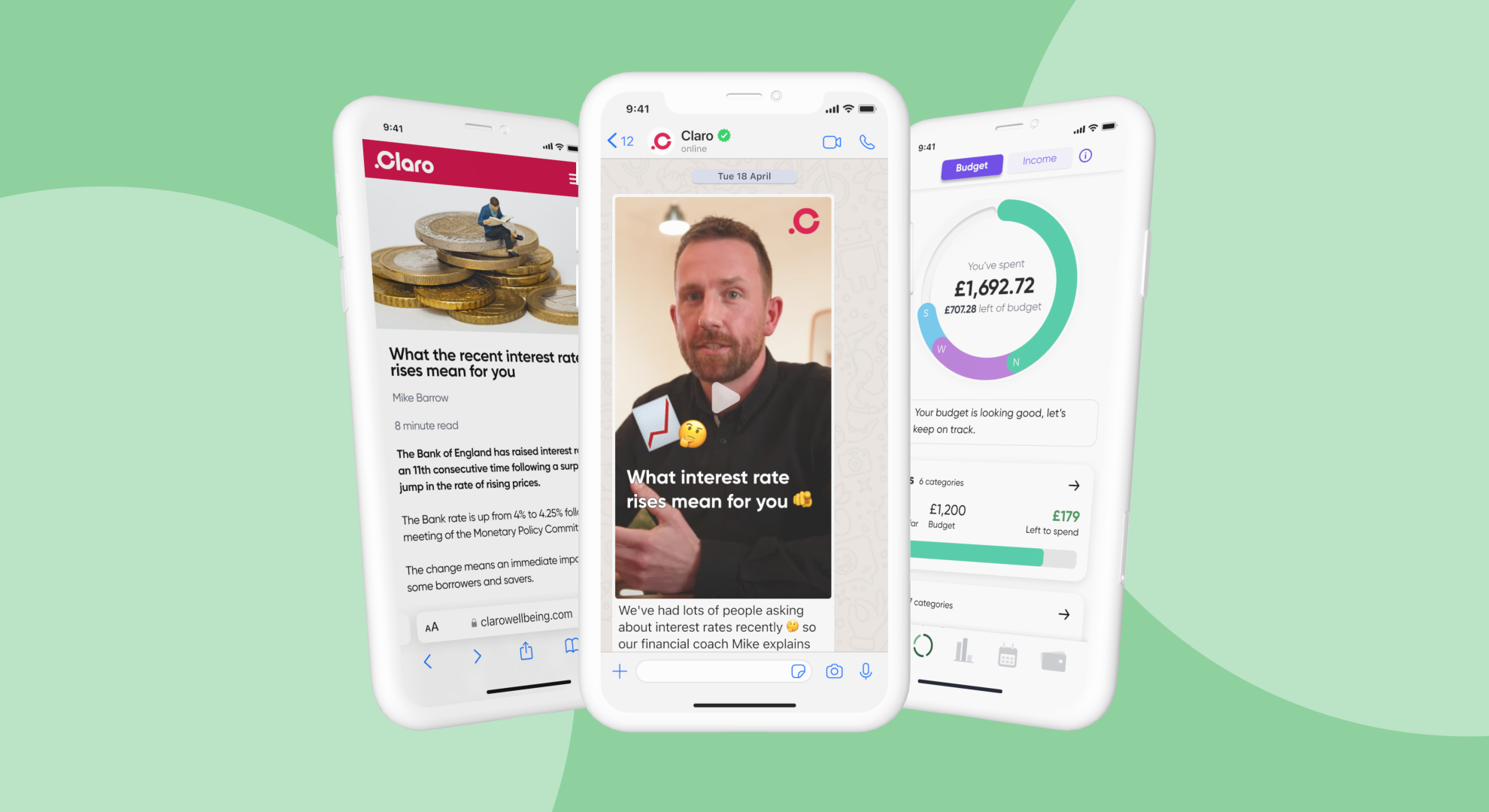6 min read
Should employers acknowledge Blue Monday?
Blue Monday (15 January) has a mixed reputation. But there’s still value in using the day to raise awareness of mental health and wellbeing...

We’re thrilled to announce we’ve partnered with transport company CMAC to provide financial wellbeing to their staff.
We spoke to Neil Micklethwaite, COO of CMAC Group, about how he’s supporting his workforces’ wellbeing through a considered benefits programme that includes financial education, and how he encourages open conversations about money at work.
Q: Neil, we’re delighted to be working with CMAC and would love to hear more about how you support your staff. Please tell us why you’ve decided to offer financial coaching and topical webinars to your workforce.
A: CMAC sees each member of staff as an individual within our ‘OneTeam’ approach and we work hard to create a people-centred, supportive, and healthy working environment. With this in mind, we offer a wellbeing programme designed to help each member of staff balance their physical and mental health with their work and career development objectives.
We’re constantly refining what we offer to ensure we’re providing support, activities and easy access to services that are practical and useful, such as free healthy foods, gym memberships, running clubs, and easy access to advice on dealing with stress and mental health issues.
Learning how to deal with stress, and manage the kind of money issues that are often the cause of stress, is where financial management comes into the wellbeing equation.
Q: Which of Claro Wellbeing’s packages did you choose, and why?
A: We’ve opted for a combination of one-to-one financial coaching sessions and a company-wide webinar.
The coaching sessions will offer individual members or staff bespoke guidance on achieving their personal goals, which could be anything from managing their money to saving for retirement or saving for a wedding.
The webinar will provide more general information and advice, which I think we’ll all find useful, on dealing with the cost-of-living crisis.
We chose to work with Claro Wellbeing because we believe they can help us deliver our financial wellbeing objectives, which is to give our staff the tools and confidence they need to handle their money more effectively and, ultimately, to have peace of mind about their finances at whatever life stage they are at.
Claro Wellbeing are the market leaders and, importantly, they share our commitment to making financial education available to everyone. We really value their experience and knowledge in delivering an incredible financial wellbeing programme while being flexible and responsive to CMAC’s needs.
Q: Why do you think financial education is an important part of employee wellbeing?
A: It’s now widely accepted that financial wellbeing is a contributing factor to employee wellbeing and improved performance at work.
People often confuse financial management with financial difficulties, but that’s not always accurate. Money and managing our finances are important parts of everybody’s life. This is especially true at times when we’re looking ahead, for example, when we’re planning to buy our first flat or house or, to ensure a comfortable retirement. Even the cost of smaller but essential purchases, like replacing a gas-guzzling elderly boiler or car that’s well past its use-by date, can be a cost too far if we’re not in control of our finances.
By providing our people with access to financial education, we’re giving them some of the tools they need to take charge of their financial wellbeing, reduce stress, and improve not only their work performance but their ability to meet their personal work and career goals.
Q: Why do you think it can be difficult for people to talk about money?
A: Money is a very personal issue. We’re even told it’s not polite to discuss our, or anybody else’s financial situation. And, of course, everybody’s financial situation is quite different from an income perspective and in terms of outgoings or financial commitments.
Because it is such a personal issue, it’s easy to believe that other people can’t empathise with our situation. I also think there can be pride, and even machismo, attached to money. We’re encouraged to measure our worth by how much we earn or consume. So, it’s no wonder people can believe that any financial challenge is a sign of weakness. They may think they’ve ‘failed’ if, in their own or possibly other people’s opinion, they’re not earning ‘enough’ to afford a particular lifestyle or even cover their bills.
Nobody wants to admit they can’t cope, especially when it comes to money. It makes us feel ‘othered’ when the reality is that money challenges can, and do, affect anybody.
Giving employees a chance to talk about their financial challenges, and then guiding them towards expert advice and education, can be all that’s needed to give them the confidence to get on top of their money problems.
Q: Finally, what are your top tips for talking to staff about money and encouraging an open conversation about finances at work?
It’s a difficult and sensitive topic to raise, especially ‘out of the blue’ and if the member of staff concerned isn’t a sharer or has retreated into themselves.
However, good, trained managers, who engage regularly with their staff and know them and their personal or domestic situation reasonably well should be able to have a conversation on most issues, whether it be sickness, absence, performance management or financial problems.
Handling difficult conversations is part of a manager’s job. The key is not to avoid them or pretend there’s no reason for the conversation to take place. It is also part of a manager’s job to be there for each member of the team and develop the type of personal relationships that allow you to notice any changes in behaviour.
If a manager is concerned by changes in an employee’s behaviour, it’s their responsibility to initiate a conversation. I don’t think managers should probe too deeply or expect too much from an initial conversation. The aim is to encourage the employee to open up enough for the manager to make an informed decision on the type of help required.

6 min read
Blue Monday (15 January) has a mixed reputation. But there’s still value in using the day to raise awareness of mental health and wellbeing...

4 min read
Ever wished you had a money-whiz friend you could ask anything, as often as you like?

7 min read
Millions are being impacted by financial stress. Yet, until now, workers in frontline occupations have not been able to benefit from educational...